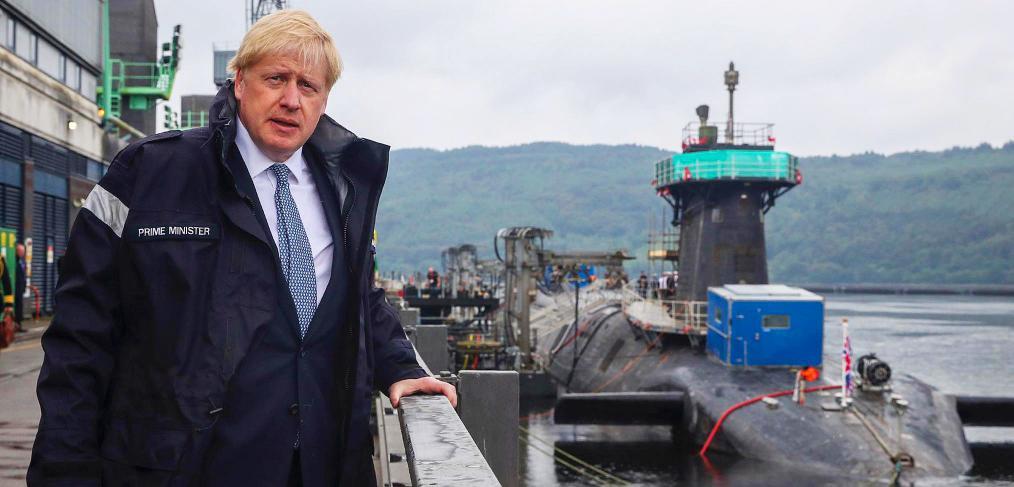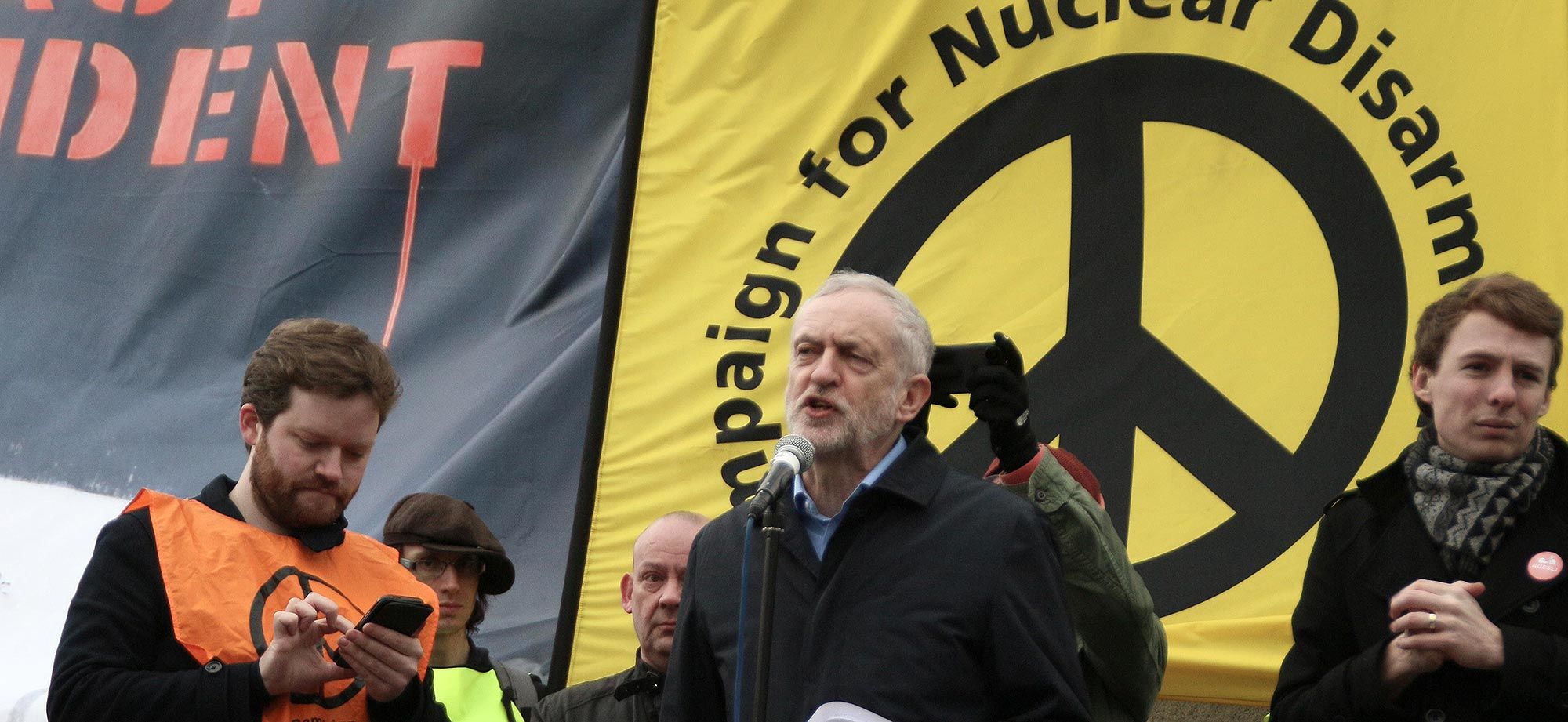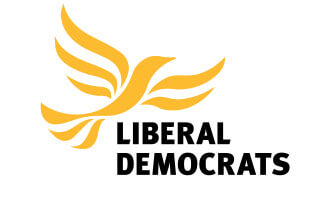
This article was first published on the Save the Royal Navy’s website on November 28th.
Predictably, serious discussion of defence policy has been almost absent from an Election campaign dominated by Brexit and the NHS. Here we analyse the manifesto promises of the main political parties in regards to defence and the RN in particular.
The Conservative Party

Unlike the other parties, the Tories can be judged on their record in office over the last decade and not just on a manifesto. The badly botched defence review of 2010 still casts a long shadow over any analysis of the Tories record on defence. Hasty and lacking strategic direction, it seriously damaged the Royal Navy in particular. In June 2010 David Cameron stood on the deck of HMS Ark Royal and proclaimed his gratitude and “huge pride in the navy” then in October 2010 axed Ark Royal along with a swathe of ships and personnel. Trust in Tory defence promises is still in recovery. Had it not been for the Aircraft Carrier Alliance wisely locking the MoD into a contract too costly to break, the QEC aircraft carriers would also have been axed in 2010, carriers which are now central to claims by the Tories of their commitment to the navy.
The previous Labour government undoubtedly left a financial and managerial mess at the MoD and some credit should go to Philip Hammond and Michael Fallon who at least brought a measure of stability to defence management. The 2015 defence review was broadly positive but in reality, was an underfunded conspiracy of optimism. The navy has become smaller over the last decade and, despite the delivery of the new carriers, tankers and OPVs, remains chronically short of people, spares and ammunition. Work to begin the Type 26 frigate programme and the Dreadnought submarines was unnecessarily delayed but are at least are now underway, along with the Type 31 project.
The arrival of the unconventional Gavin Williamson as defence secretary in 2017 was significant. His determination to really fight the Treasury to ensure the promises of 2015 could be delivered without new cuts was encouraging. He was partially successful and the defence budget subsequently has seen two successive years of increases. Williamson was sacked by Theresa May for “leaking”, although he will probably be seen as on the right side of history for trying to resist Huawei being allowed access to UK communications infrastructure. His replacement was Penny Mordaunt, a life-long friend of the Navy, but she did not get time to make an impact before losing her job for not backing Boris Johnson’s leadership bid. The current incumbent, former Army officer Ben Wallace, has impressed in his brief tenure so far and is also well qualified for the role.
In theory, strong support for the navy should be a natural fit for the Tories who claim to be “the party of defence” committed to trade-led growth, international partnerships and a post-Brexit “global Britain”. Their manifesto spending promise is the biggest of all the parties, although any serious defence analyst will confirm this is still too little, too late, given the threats the UK faces. The Tories will “exceed the NATO target of spending 2 per cent of GDP on defence and increase the budget by at least 0.5 per cent above inflation every year of the new Parliament”. A promise to “modernise the equipment and improve the capability of our world-class Armed Forces” is welcome but so vague as to be almost meaningless. There is a commitment to uphold the democratic rights of people in Gibraltar, the Falklands and all overseas territories which by implication requires a strong navy. Tory commitment to Trident renewal is unwavering and like the other parties, they have much to say about improving veterans welfare and delivering the Armed Forces Covenant.
The Labour Party

The statements of Nia Griffiths, the shadow defence secretary and the Labour party manifesto sound superficially reassuring. Officially Labour is promising to spend at least 2% of GDP on defence, support the renewal of the Trident nuclear deterrent and maintain UK commitment to NATO. This looks much like a continuation of Tory policy although it should be noted recent modest spending increases mean we are now technically spending over 2% of GDP on defence. Labour are planning an enormous public spending spree that would see almost every government department, apart from the MoD, get substantial additional funds.
Together with a new Defence and Security Review, Labour plans to develop a Defence Industrial Strategy including a [New?] National Shipbuilding Strategy, that “keeps all Royal Navy and Royal Fleet Auxiliary shipbuilding contracts in the UK”. They also promise to accelerate the safe and sustainable recycling of decommissioned nuclear submarines. There can be little complaint about these aspirations.
One of Labour’s most sensible suggestions is to invest an additional £400 million in overseas diplomacy. A series of cuts to the Foreign Office budget have undermined UK influence, diplomacy and intelligence gathering capacity overseas. A strong diplomatic corps should be seen as the first line of defence in conflict prevention and maintaining UK interests in the world.
Unfortunately despite the moderate veneer of Labour defence policy, the party is lead by Jeremy Corbyn and a small cabal of communists and terrorist sympathisers whose first instinct is to encourage enemies of the UK and blame the US for almost every problem in the world. Corbyn’s track record includes support for the IRA, Hamas, Hezbollah, and other anti-Western extremist groups. He has worked for Iranian state TV and, perhaps most alarmingly, could not bring himself to condemn Russia for the attempted murder of Sergei and Yulia Skripal on British soil.

Labour’s policy on nuclear weapons is as chaotic as its Brexit policy, trying to adopt two opposite positions simultaneously. Shadow foreign secretary, Emily Thornberry says a Labour government would “make a collective decision” on the use of Trident. Meanwhile, Jeremy Corbyn, a vice president of CND, has said he would “never press the nuclear button”. A majority of Labour MPS voted to renew Trident in 2016, a move that is popular with unions and seen as electorally prudent. Effectively Labour would continue to pay the considerable cost of maintaining nuclear weapons but with their deterrence value critically undermined by a leadership that refuses to contemplate their use and wants to axe them when politically more convenient.
In 2011 Corbyn claimed “NATO was founded in order to promote a cold war with the Soviet Union… is a danger to world security and should be disbanded”. This warped view of NATO which has been the buttress against authoritarian Russian domination and expansionism in Europe for more than 70 years is entirely delusional. Retreat from NATO while wrecking the UK’s deeply entwined intelligence and defence relationship with the US would not make for a safer or more peaceful world. Faced with an adversary such as Putin who will seek to exploit weakness and push as far as he can get away with, a policy of appeasement could have serious consequences. As the most important European member of NATO, if the UK should waver on its commitment to the alliance it is not unthinkable that Russia might exploit this weakness by invading the Baltic States or pursuing further expansionism as it has in Ukraine and Crimea.
Given his past associations and pronouncements, Corbyn would not even pass security vetting to clean the toilets in MoD Main Building, never mind take charge of the armed forces and intelligence services. The former head of MI6, Sir Richard Dearlove says “The soft-spoken, apparently gentle old man who is promising voters the world may not be quite as he now wishes to present himself. His radical past portrays the truth about what type of politician he was, a political relative of the gang of Communist henchmen who created East Germany.” There are several former Labour MPs who actually endorse voting Tory, such is their concern about Corbyn getting into Number 10. Even if you accept there are many very honourable candidates and one approves of their domestic policies, a vote for Labour risks the defence and security on the UK by selecting an entirely unfit person to be Prime Minister.
The Liberal Democrats

The Lib Dems have effectively positioned themselves as a single-issue party for the purposes of this election. Their manifesto is dominated by a “Stop Brexit” agenda. This may be a sensible political strategy although their claim that stopping Brexit will generate a “£50 Billion remain bonus” is hard to substantiate. Apparently this bonus will provide for an extra £3Bn for defence in this Parliament. Defence policy is very light in detail but broadly in line with the Tories and Labour, promising to maintain the 2% GDP spending. They plan to “Promote an international treaty on the principles and limits of the use of technology in modern warfare” and are strong on support for veterans and service personnel welfare.
The Lib Dems have been lukewarm about Trident in the past and this is reflected in a classic fudge where they support renewal but would only build three submarines. Relatively small savings would come from axing boat 4 but with the big consequence that the force would be unable to guarantee Continuous At Sea Deterrence. Instead, the Lib Dems plan a half-baked “medium-readiness responsive posture and unpredictable and irregular patrolling patterns”. At least the leader, the otherwise toe-curlingly patronising Jo Swinson, has some grasp of deterrence theory and has said she would be prepared to use nuclear weapons.
The Scottish National Party

The SNP have one over-riding agenda in Westminster and this is to force a second “once in a lifetime” referendum on Scottish Independence. A subsidiary objective is to axe Trident, or at least see the deterrent removed from its home on the Clyde. In return for another referendum, the SNP could agree to prop up a minority Labour government.
As we have regularly observed, Scottish Independence would be particularly catastrophic for the Royal Navy. It is not simply a case of packing a few bags and sending the submarines and minehunters south to other naval bases. Enormously expensive specialist infrastructure across Scotland supports both the nuclear deterrent and many other critical conventional capabilities. The MoD appears to have no plan for Independence and continues to invest heavily in Scottish defence infrastructure such as the P-8 support project at RAF Lossiemouth. To replicate these facilities south of the border would cost £billions and take many years. Whether by accident or design, the majority of the UK surface shipbuilding capacity is also north of the border with 13 frigates either on order or under construction. Building warships “abroad” in an independent Scotland is unlikely to be politically tolerable and relocating their construction would inevitably induce serious additional cost and disruption to these important projects. The employment and economic damage to Scotland would be obvious and in no way could be mitigated by plans to build a few patrol ships for the “Scottish Navy”.
Tearing Scotland out of the 300 hundred-year-old Union would be a painful and complex separation that will make the Brexit process seem like a minor inconvenience. The negotiations over the division of military assets alone is fraught with problems and would weaken both parties. Scotland is effectively the frontline for the largely unseen and misunderstood campaign in the North Atlantic, GIUK gap and Arctic to contain the Russian naval threat. Even putting aside the potential loss of Trident, the collective defence of the British Isles and Europe as a whole would be undermined and complicated by having separate nations with divergent agendas. Any growth in Scottish Nationalist influence at Westminster would be great news for Putin and the other parties need to provide a more credible and positive alternative to the SNP’s false narrative of division and grievance.
The Green Party

Apart from the headline policy of cancelling Trident (and axing all nuclear submarines), the Green Party plan to abolish the Ministry of Defence and replace it with a “Ministry for Security and Peace”. The UK would withdraw from NATO and effectively the armed forces (and supporting industries) would be dissolved apart from some kind of vaguely-defined peace-keeping force. There is no mention of the Navy or any recognition that the UK is an island entirely dependent on the sea, although we are assured expensive missiles and jet aircraft would have no place in their “de-carbonised military”.
Other highlights of their ‘Peace and Defence Policy’ include allowing service personnel to disobey orders, to join a union and allow the use of “public interest defence” for breaching the Official Secrets Act. The naive do-goodery of this surrender document is unfortunately entirely out of step with growing global great power competition and realpolitik. As the first people to complain about breaches of international law, the Greens plan to remove the very means of upholding the rules-based order that has prevented global conflict for more than 70 years. Fortunately Parliamentary representation of the very antithesis of the RN’s moto: “Si vis pacem, para bellum” (If you wish for peace, prepare for war) will probably be solely confined to the member for Brighton.
Conclusion
For the minority of the electorate with a real concern about the future defence and security of the UK and its allies, the political landscape is far from reassuring. There are question marks over the integrity of Boris Johnson and whether his boisterous optimism and bluster would make for sound leadership in the event of an international crisis. That said, any reservations about Boris pale beside the frightening prospect of Corbyn, McDonnell and Abbot in control. Despite their poor track record, especially between 2010-17, one must reluctantly conclude, on defence issues at least, the Tories are in pole position, given the alternatives.
Article and images courtesy of Save the Royal navy, a website devoted to the preservation of the RN as a capable fighting force in a modern world.

Comments on Election 2019: In search of the Royal Navy’s political friends